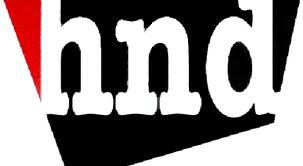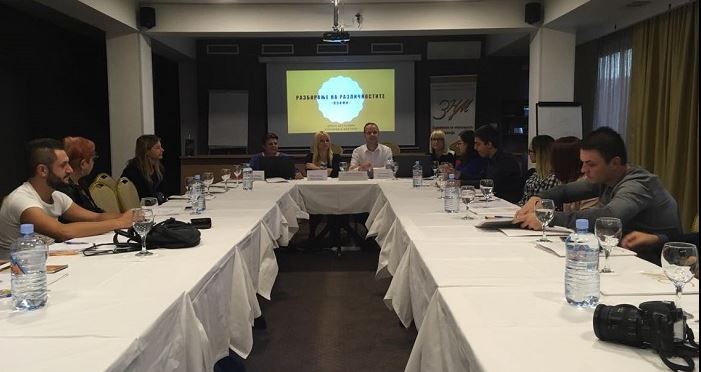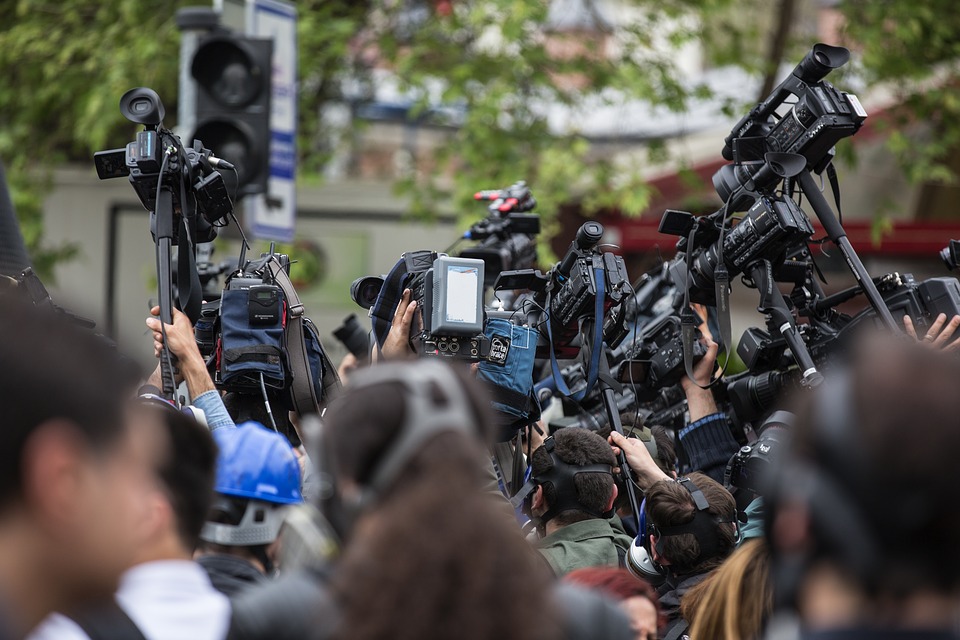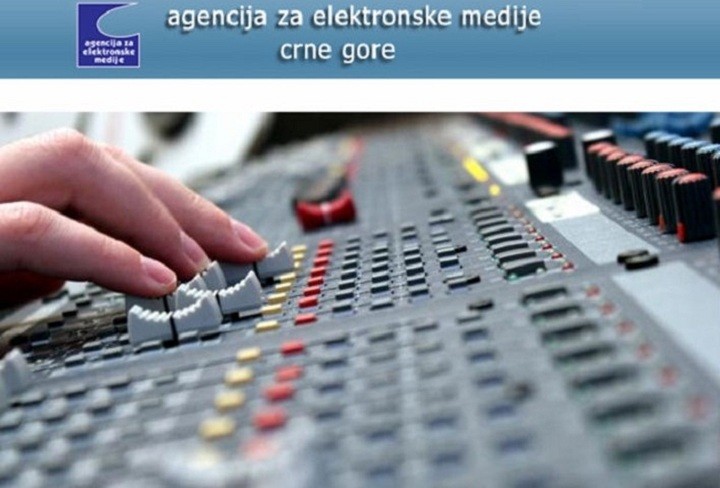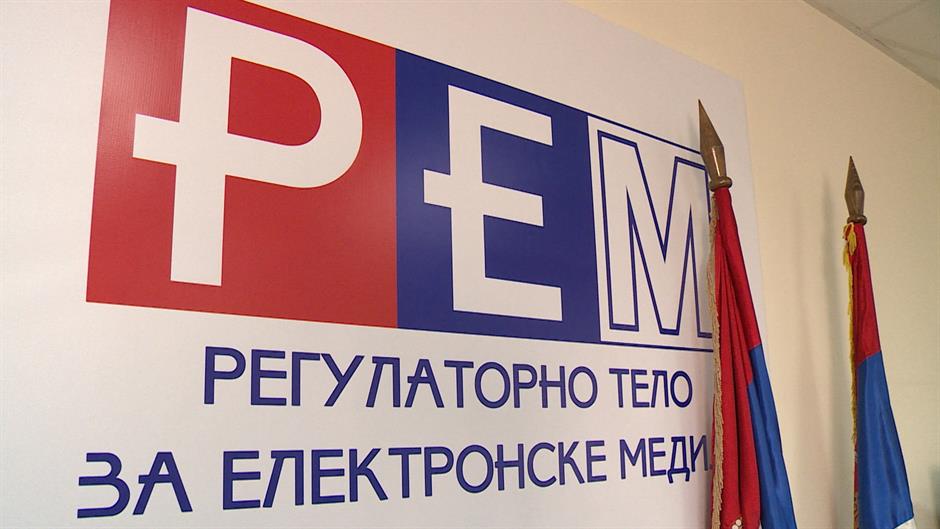BELGRADE, 02.10.2018. – Despite the clouds, the sun was shining in Pristina. At 21 degrees, the cold and the crepuscular rays reminded the journalist Marjan Melonasi too that the autumn was close. He had just finished a half-hour show on Radio Kosovo, maybe even by warning fellow citizens of the fact that one should have contrived and started preparing for long winter that was knocking at their doors in the destroyed Kosovo.
At 2:10p.m., he left the building located in the center of Pristina and got into an orange taxi. Neighbors whose offices were across the street saw him. It was 9 September 2000 and this is all the family has known about him ever since then.
– The two of us spoke over the phone on 6 September. I was supposed to go to Nis to get some documents, and he called me to tell me not to worry. His phone was playing up and he would not call me for two or three days. He never came back – his mother, Cica Jankovic, recounts for the Journalists’ Association of Serbia (JAS) from her wrung heart.
Appeals to Thaci and Haradinaj
Not suspecting that she would not see him for 18 years, she was waiting to hear his voice over the phone again. Instead of hearing from her son, her soul was screaming upon hearing terrible news from a former neighbor from Novi Pazar.
– She had heard what happened on TV and called me. I had no idea. It was a shock, followed by disbelief. I will not tell you everything I have tried to do. I called Marjan’s grandfather who was living in Pristina. He was trying to calm me; he did not let me come. I would try to find him, he said.
Marjan’s grandfather, Krista Melonasi, had been the Principal of the School of Internal Affairs in Vucitrn for 13 years. He stayed with his grandson in the town because he did not want to let him stay there alone.
– All those generations of police officers, who later became members of KLA and other Albanian structures, had studied in grandfather’s school. He went to Hashim Thaci, and he went to Ramush Haradinaj, but they did not say anything to him. Considering where he had worked, I was firmly convinced that grandfather would be able to find out what happened to my son, no matter what the truth was. As if a living being were water able to evaporate, disappear. Just like Marjan – she says.
Krista Melonasi died last year.
Conspiracy of silence
Marjan’s colleagues who worked with him in the then newly established Radio Television Kosovo have never called her, Cica Jankovic underlines.
– It is a conspiracy of silence. It is unbelievable that nobody knows anything. There was some misinformation, but that is not the reason to kidnap somebody, to cut somebody short. A person from the EULEX Office told me, allegedly someone told her to convey this to me, that Marjan had been detained with ten other men in the Cultural Center in Kosovo Polje for days. Afterwards, one group was taken in the direction of Vucitrn and the other in the direction of Pec. I do not see the point of this story unless they were used for organ trafficking? I do not know what is worse.
At the time of his disappearance, Marjan’s mother says, the young man lived in the center of Pristina and was in a relationship with S. K., who was also a journalist. However, Cica Jankovic was forced to extort a meeting with her.
– They lived together in grandfather’s apartment. They were in a serious relationship and intended to get married. Since Makica always wanted me to marry, probably so as not to worry about me, he was telling me, mother, let’s have a double wedding. A few days after he disappeared, a UNMIK’s police car came and took her to the northern part of Kosovska Mitrovica. She brought Marjan’s albums, passport, mobile and notes with her, which grandfather did not manage to find later. When I learned that she had come to Belgrade, I literally pressured her to see me. It was a short meeting. She gave me the passport – never the pictures. I have never seen her again.
When it comes to the investigation, she adds, no one has contacted the family, except that one time when she was invited to the Palace of Justice for an interview.
– I have no result. The result is that I wake up every morning knowing that this is yet another day without Marjan and that I have to survive it. We found out on our own, from the people who worked in the building across the street from the Radio that he had gotten into a taxi. We also found out that these cabs were often used by foreigners, which they deny today. Much later, I found out that a colleague did not like him, so he threatened him. However, Marjan did not complain to me.
The truth is not in the interest
In September 2000, Cica Jankovic immediately reported her son’s disappearance to UNMIK, the International Committee of the Red Cross, the Red Cross of Yugoslavia, and the MoI of the Republic of Serbia, but this did not yield any results.
In all these years, as an active member of the Association of Families of Kidnapped and Missing Persons in Kosovo and Metohija, not a meeting with representatives of domestic and international institutions has passed by that she has not mentioned her son, as well. However, only 14 years later, on 16 October 2014, what she instinctively knew got confirmed
In the case of disappearance of Marjan Melonasi, the journalist of the Serbian news desk of Television Kosovo, UNMIK’s Human Rights Advisory Panel has found that there are no investigation files in UNMIK’s documentation that would indicate that the police interrogated anyone in connection with the case.
– Taking into account the circumstances of this case, UNMIK has not taken all appropriate measures to find the mortal remains of the missing person and continue the investigation to identify the perpetrators and bring them to justice. The Panel is concerned that such inactivity indicates a certain unwillingness of UNMIK police to conduct an investigation, especially since there are indications of politically motivated violence implicating persons associated with the KLA – the Panel states in its conclusions.
The Head of the Mission was requested to make a public admission of the responsibility for human rights violation by the Panel, to apologize to the family, and request the competent authorities in Kosovo to take all possible steps to ensure the continuation of the criminal investigation and bringing of the perpetrators to justice.
– When you hear all this, you feel powerless. You cannot do anything. First, the then authorities did not submit any missing person requests to Kosovo. Knowing the fate of my son, and of the others, obviously is not in the interest. If it were, they would have found out and at least told us the truth. With such rule of law systems, that truth and justice, I am sure, I will not live to see – says Cica Jankovic.
He did not want to leave Pristina
– I begged him on my knees; however, he did not want to leave Pristina. He kept repeating – peace is here now. I should better stay here and work for a decent salary rather than come to you and have no work. Just a little longer and I will come. Thus, he led me on from month to month.
Marjan Melonasi knew Serbian, English, Albanian, Romani, and began to learn Turkish, so he easily found job as an interpreter. He had a wide circle of friends, believed in survival and coexistence, and believed that Kosovo would become Switzerland.
– He first worked in the Swiss Media Action International, then in Yen, a Japanese humanitarian organization in Kosovo Polje, where he went to Serb villages and carried humanitarian aid. Then he was employed at Radio Kosovo, at the Serbian news desk. He worked on city news, and there was no politics there. He did interview certain NATO leaders, but on the topic that Pristina was demolished, that there was no electricity or water, and that all these services had to be restored. He would go to the Red Cross and make reportages. That was the content of his program – his mother explains.
Many years later, Marjan’s mother met Stevan Simovic, the father of the killed journalist Aleksandar Simovic Simo. Then she found out about another twist of fate. Following the murder of Aleksandar Simovic, Marjan Melonasi replaced him at his job with the Media Action International.
Marjan Melonasi was born in Pristina on 3 July 1976. He is an only child. He grew up, was educated and worked at his place of birth. All Marjan’s friends describe him as an urban guy, a city-type, unencumbered by politics.
– Neither was I raised by my parents, nor was Makica raised by me, his father, grandfather or uncle, to be a politician. I would now again influence the formation of his personality in the same way. A rarely good kid. Warm and dear. Every time I dream of him, I am angry at first, and I want to beat somebody up because he is gone. No matter how much I fretted because he remained in Pristina, as only a parent could fret about his/her child, the moment he disappeared, I was empty. I stopped fretting. In a corner of my soul, I believe that Marjan still exists somewhere, breathing, and living. I am lying to myself, but that is the only way I can survive.
| There was no freedom for the Serbs
Cica Jankovic left the Center of Pristina, in which she lived, in July 1999, after her parents had left. Recalling the time when, as she says, she herself avoided being attacked or beaten by hiding behind parked cars to avoid “escorts”, she says that it was a time when there was no freedom for Serbs. |
| The chasm hurts
– Marjan was an ordinary boy. He was interested in everything. I can speak about my boy in superlatives, but that will probably not be the right picture. I always experience blocks when I need to talk about Marjan. It hurts so much that I simply cannot speak. What can a mother say about her child, except that she loves him? |
|
Tomanovic: UNMIK failed to respond to our appeals UNMIK launched the investigation into the disappearance of Marjan Melonasi only in 2005, although his mother had reported the crime five years earlier, and Verica Tomanovic, President of the Association of Families of Kidnapped and Missing Persons in Kosovo and Metohija, specifically drew attention to UNMIK’s crimes in Pristina in 2003. – That year we had a meeting with the Head of the UNMIK Investigation Division, where we separately presented the data on crimes in Pristina, explaining that many people had been kidnapped and disappeared and that we did not have any information. That Head showed us empty registers; showed us that nothing was done and sent us to the Missing Persons Division. They were surprised at the UNMIK Missing Persons Division when they saw us. All inspectors assembled around the table and said they were doing their job and they would inform us. There have been no notifications, and we have been hearing various “explanations” for years that the reason for their abduction was revenge. But all those who remained in Kosovo after June 1999 were innocent civilians who did not have any weapons and did not do anything to anyone – says Verica, who has been searching for her husband, Dr. Andrija Tomanovic, Head of the Surgical Clinic in Pristina, for 19 years. |



